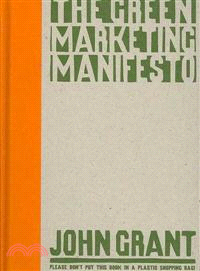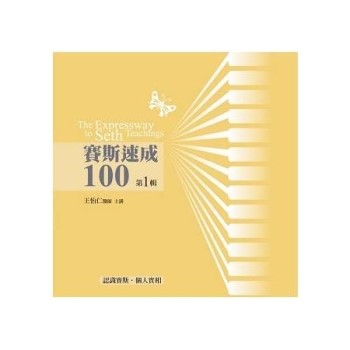| FindBook |
有 1 項符合
THE GREEN MARKETING MANIFESTO的圖書 |
 |
THE GREEN MARKETING MANIFESTO 作者:JOHN GRANT 出版社:JOHN WILEY & SONS,LTD 出版日期:2007-10-29 規格: / 精裝 / 320頁 |
| 圖書館借閱 |
| 國家圖書館 | 全國圖書書目資訊網 | 國立公共資訊圖書館 | 電子書服務平台 | MetaCat 跨館整合查詢 |
| 臺北市立圖書館 | 新北市立圖書館 | 基隆市公共圖書館 | 桃園市立圖書館 | 新竹縣公共圖書館 |
| 苗栗縣立圖書館 | 臺中市立圖書館 | 彰化縣公共圖書館 | 南投縣文化局 | 雲林縣公共圖書館 |
| 嘉義縣圖書館 | 臺南市立圖書館 | 高雄市立圖書館 | 屏東縣公共圖書館 | 宜蘭縣公共圖書館 |
| 花蓮縣文化局 | 臺東縣文化處 |
|
|
- 圖書簡介
We are currently eating, sleeping and breathing a new found religion of everything 'green'. At the very heart of responsibility is industry and commerce, with everyone now racing to create their 'environmental' business strategy. In line with this awareness, there is much discussion about the 'green marketing opportunity' as a means of jumping on this bandwagon.
We need to find a sustainable marketing that actually delivers on green objectives, not green theming. Marketers need to give up the many strategies and approaches that made sense in pure commercial terms but which are unsustainable. True green marketing must go beyond the ad models where everything is another excuse to make a brand look good; we need a green marketing that does good.
The Green Marketing Manifesto provides a roadmap on how to organize green marketing effectively and sustainably. It offers a fresh start for green marketing, one that provides a practical and ingenious approach. The book offers many examples from companies and brands who are making headway in this difficult arena, such as Marks & Spencer, Sky, Virgin, Toyota, Tesco, O2 to give an indication of the potential of this route. John Grant creates a 'Green Matrix' as a tool for examining current practice and the practice that the future needs to embrace. This book is intended to assist marketers, by means of clear and practical guidance, through a complex transition towards meaningful green marketing. Includes a foreword by Jonathon Porritt. - 作者簡介
John Grant co-founded St Luke's the innovative and socially aware London ad agency. Working with clients such as the Body Shop as well as mainstream brands, St Luke's pioneered the view of a company's "Total Role in Society" and operated as an employee shareholder democracy. Since leaving in 1999 he has worked as an independent consultant. John's recent clients include IKEA, innocent, LEGO, O2 and SVT (the Swedish broadcaster). Over the years he has been involved with green brands (the Ecologist), sustainability (IKEA's global ethical and environmental reporting), start ups (ONZO, a home energy monitor manufacturer), social ventures (The Young Foundation), sustainable marketing agencies (Clownfi sh), committees (Forum for the Future) and reports (WWF). John's previous books which all deal with 'what's new?' have earned widespread praise, popularity and critical acclaim. The New Marketing Manifesto was named one of the ten best business books of 1999 by Amazon. After Image (2002) was included in a list of 'the most popular business books in the world' on Wikipedia. Brand Innovation Manifesto (2006) was described as: ". . . a great addition to brand consumer communication methodology . . . " (Brand Strategy) ". . . read it . . . " (Admap) ". . . revolutionary . . . " (The Marketer). John was voted the most in-demand event speaker in London in an RAB poll. John is also a prolifi c blogger and writer of articles and reports. His current thoughts on green marketing can be found at //greenormal.blogspot.com and he is also the offi cial blogger for the Green Awards at //www.greenawards.co.uk/
- 目次
Foreword.
Acknowledgements.
Introduction.
Section I BACKGROUND.
Setting the Scene.
A Tipping Point – And Then What?
The Green Consumer Bandwagon of 1989.
The Green Challenges.
The Marketing Challenge.
The Green Consumer? (Or All Consumers?).
Sustainability – The Backroom Revolution.
The Green Marketing Challenge.
Green Marketing’s Five I’s.
Endnote: Another Revolution.
Section II THE GREEN MARKETING GRID.
Overview.
A. Green – Setting New Standards for Responsible Products, Services, Brands, Companies.
B. Greener – Sharing Responsibility with Customers.
C. Greenest – Shaping a New Culture of Responsibility Through Innovation.
1. Public – Company Story, Engagement Campaigns, Futures.
2. Social – Identity and Community.
3. Personal – Products and Habits.
A1: Set an Example.
A2: Credible Partners.
A3: Market a Benefit.
B1: Develop the Market.
B2: Tribal Brands.
B3: Change Usage.
C1: New Business Concepts.
C2: Trojan Horse Ideas.
C3: Challenging Consuming.
A: Setting New Standards (Green).
A1: Set an Example.
A2: Credible Partners .
A3: Market a Benefit.
B: Sharing Responsibility (Greener).
B1: Develop the Market.
B2: Social/Tribal Brands.
B3: Change Usage.
C: Supporting Innovation (Greenest).
C1: New Business Concepts.
C2: Trojan Horse Ideas.
C3: Challenging Consuming .
Section III CONCLUDING THOUGHTS.
Ideas Good, Image Bad.
A Fresh Start for Green Marketing.
References.
Index.
|










